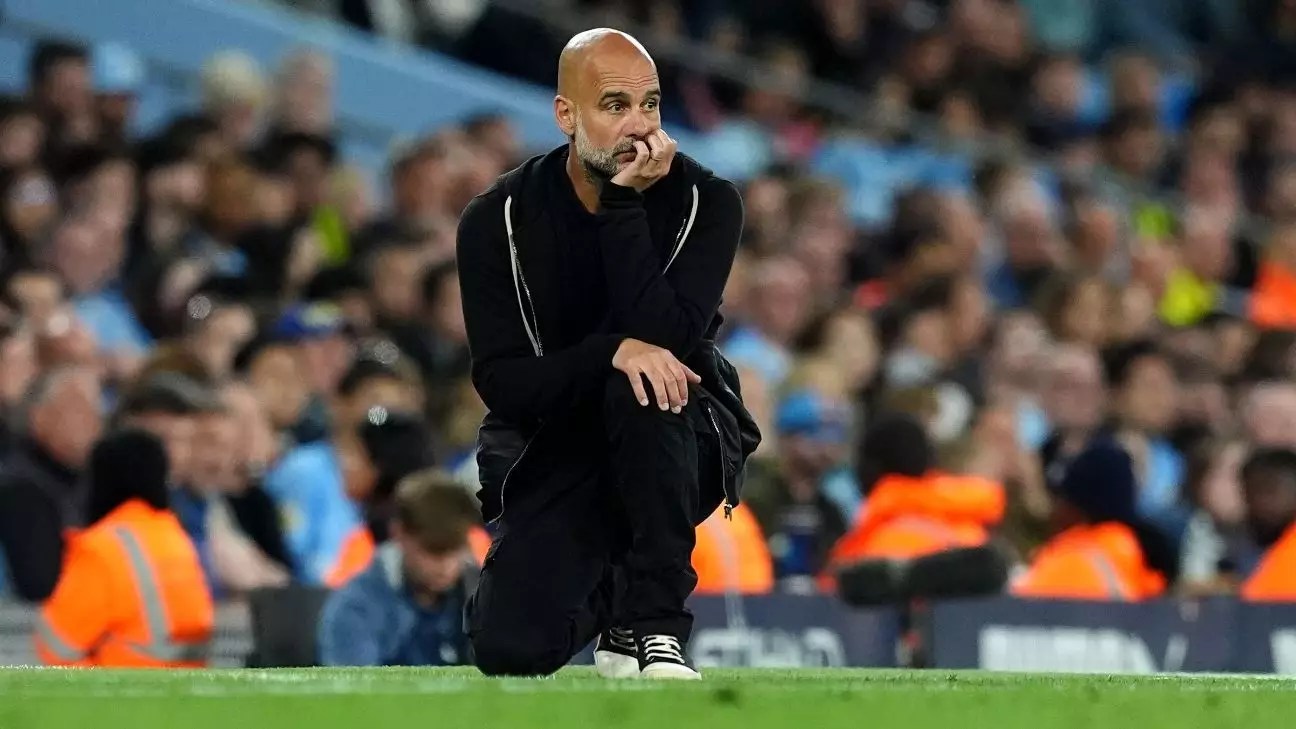Pep Guardiola’s recent statements regarding his future at Manchester City reveal a deeper philosophy than simply numbers on a roster. In an age where big clubs are tempted to stockpile talent, Guardiola emphasizes a more personal and considerate approach to team management. Speaking candidly after a 3-1 victory over Bournemouth, he made it clear that he would rather resign than manage an oversized squad. This is not merely about player management; it reflects Guardiola’s profound commitment to individual development and the psychological well-being of his athletes.
Guardiola’s insistence on a streamlined squad is rooted in the belief that quality triumphs over quantity. The season saw City struggle, not just due to on-field competition, but also hampered by injuries and a lack of consistency in engagement across a bloated roster. The echoes of the past trophyless season serve as motivation for the Spanish manager to redefine the club’s direction. His comments have sparked a discussion on the emotional and psychological dynamics in football, which are often overshadowed by the very results that managers strive for.
The Reality of Squad Management
By opting for a squad of 20 players rather than 24 or 25, Guardiola recognizes the drawbacks of an oversized team: discontentment among sitting players and a dilution of competitive spirit in training. His methodology esteems the importance of cultivating relationships with players, ensuring that they feel valued and engaged. The idea of leaving five or six athletes on the sidelines—isn’t just a logistical matter for Guardiola; it gnaws at his professional ethics and personal philosophy. For a coach who prides himself on nurturing talent, sidelining players fragments the very foundation upon which a successful team is built.
This commitment resulted in difficult choices during pivotal games, where emerging talent like James McAtee and Rico Lewis faced exclusion despite their potential contributions. Such decisions were compounded by injuries to key players like Rodri, which illuminated the fragility of heavy squad numbers. Instead of facing a managerial nightmare rife with confusion and dissatisfaction, Guardiola’s vision may ultimately cultivate a tighter-knit, more cohesive unit.
Future Aspirations: The Need for Transformation
Guardiola’s vision is not just about trimming the roster; it signifies a push toward a transformative future for City. The impending departures of stalwarts like Kevin De Bruyne and possibly Kyle Walker only accentuate the need for new blood and fresh dynamics. Guardiola has already signaled his intent to made significant signings in the upcoming offseason, yet he makes it unmistakably clear: filling the ranks for the sake of numbers is not an option.
His statement underscores a broader notion resonating throughout football: a club’s essence lies within its ability to forge unity, craft synergy, and foster relationships. A lean squad, while more manageable, also creates a fertile ground for growth and tactical flexibility. By aligning with Guardiola’s vision, Manchester City has a unique opportunity not just to revamp its roster, but to cultivate a culture that values each member’s role beyond mere performance statistics—a refreshing approach in the competitive world of football.


Leave a Reply